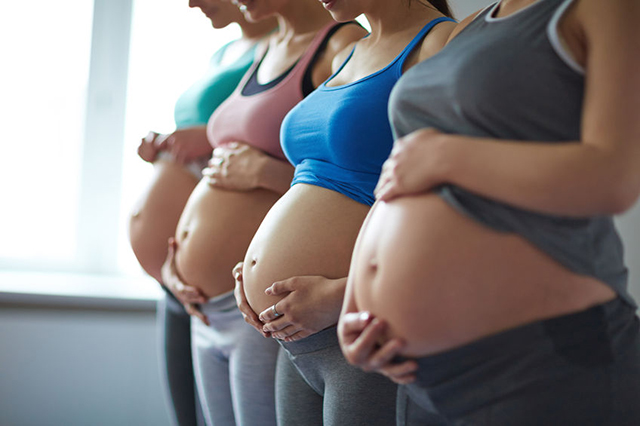

An Obstetrician’s Guide on What to Expect During Your Pregnancy Journey
Dr Ujwala Parashar is an Obstetrician and Gynaecologist at North Shore Private Hospital.
A typical pregnancy has three trimesters (around 40 weeks in total), followed by the post-partum period. Pregnant women can expect some common changes to occur; and some diet and lifestyle modifications can aid in a trouble-free pregnancy and a healthy baby.
First Trimester (week 1 – week 13)
Women commonly experience nausea and vomiting, cravings and aversions, a heightened sense of smell and mood swings. It’s not uncommon for women to lose a little weight during their first trimester due to nausea, vomiting and a loss of appetite. Ideally, your daily diet should include:
- Fruit – 3-4 servings of fresh, frozen, or canned fruit (natural juice only), dried fruit, and 100% fruit juice
- Vegetables – 3-5 servings with as much colour variety as possible (think of a rainbow)
- Dairy – 3 servings. Dairy provides calcium for your baby to grow and keeps your bones strong. Choose milk, cheese, and yoghurt and if lactose intolerant, choose lactose free
- Protein – 2-3 servings. Lean meats, poultry, fish, eggs, legumes, nuts, seeds
- Whole grains – 3 servings. An important fibre source – whole grain breads, cereals, crackers, pasta
Other diet tips are:
- Try not to overeat. You only need about 300 more calories daily and drink lots of water.
- Try and avoid too much salt, raw, undercooked meat, deli meat, unpasteurised dairy, liver, foods rich in vitamin A, pate, raw or undercooked eggs (including mayonnaise), soft cheeses, blue-veined cheeses, undercooked, raw fish.
- Limit fish with high mercury (salmon and sardines are good choices), caffeine and alcohol.
Second Trimester (week 13 – week 26)
Women commonly experience round ligament pains, nipple changes, stretch marks, and can feel their baby moving.
Third Trimester (week 27 to the end of the pregnancy)
Women commonly experience strong kicks from their baby, swollen feet, leaking from their breasts and frequent urination.
Diet during second and third trimesters
Maintain the same diet choices as outlined for the first trimester including iron rich foods. In the third trimester women can experience reflux and heartburn, try to eat small meals and snacks every few hours.
Postpartum (period of 6 weeks after birth)
Women can experience lochia (vaginal discharge containing blood, mucus, uterine tissue), fatigue, sore, leaking breasts, baby “blues” and postpartum depression.
Maintaining a healthy diet will help you feel fuller and give the extra energy you need. Iron rich foods are beneficial and foods rich in vitamin C can assist with wound healing for C-section deliveries.
What immunisations are required?
Pregnant women’s immune systems are weaker than usual. Pre-planning should include vaccinations for hepatitis B, measles, mumps, rubella and chickenpox as these cannot be administered during pregnancy. If not undertaken prior, these are safe for breast feeding mothers and babies and should occur as soon as possible after birth.
You should also be immunised for influenza and whooping cough. These can be administered pre-pregnancy or during pregnancy (influenza at any time, whooping cough from 21 – 32 weeks).
What exercise is suitable?
Pregnant women without complications should continue with aerobic and strength conditioning exercises to maintain good fitness; with a minimum of 30 minutes of exercise daily.
Suitable exercises include walking, swimming, cycling, jogging, yoga and pilates.
Pelvic floor exercises are important during pregnancy, and at our practice we provide this service through our onsite physiotherapist as part of our care plan.
Author: Dr Ujwala Parashar, Obstetrician and Gynaecologist at North Shore Private Hospital.














